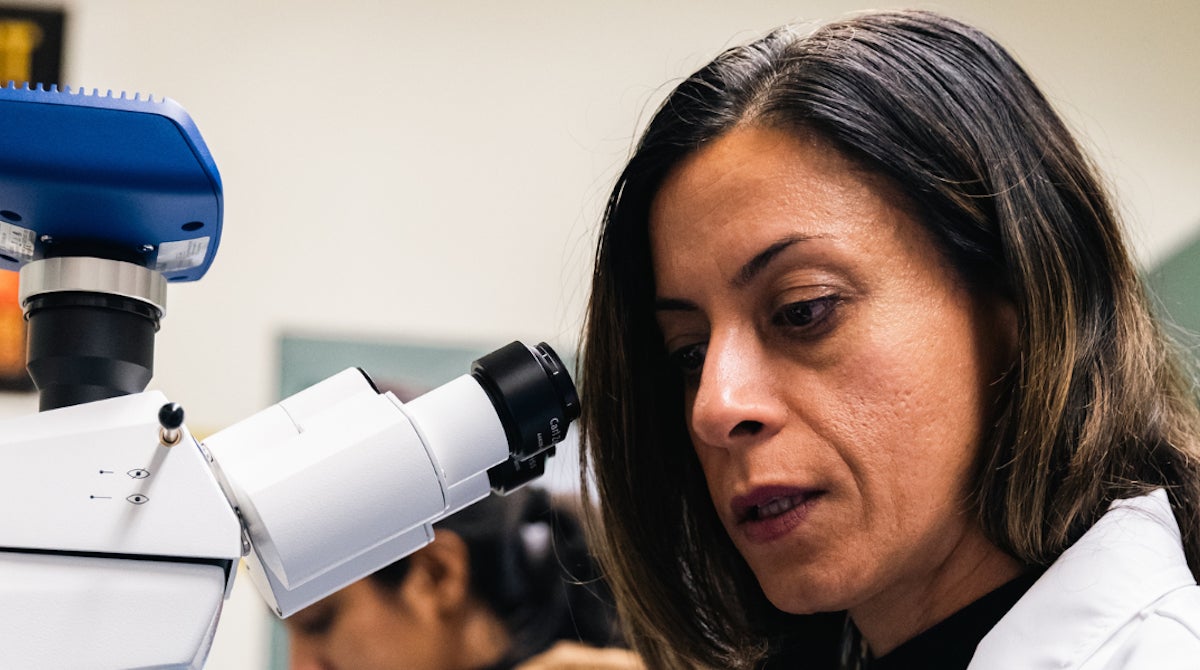Academic Accommodations
The first step to requesting academic accommodations is to complete our online form:
Requesting Academic Accommodations
Next Steps
What happens in my first meeting?
This meeting is a collaborative conversation between you and an Accessibility Services staff member. The main goals are to develop your personalized accommodation plan, learn about how to utilize your accommodations at Merrimack, be introduced to technology that might be helpful, and have the opportunity to be connected to one of us as your success coach.
Once I am registered, am I all set for all four years at Merrimack?
- You only need to register and have an intake meeting once with Accessibility Services
- You’re responsible to request your accommodation plan through our software each new semester.
- Accommodation plans can be updated at any point in your academic career. You can meet with an Accessibility Services staff member to discuss your concerns.
Some examples of potential accommodations include:
- Testing accommodations
- Alternative format text and information about assistive technology
- Note-taking support and audio recording
Eligibility and Documentation
To be eligible for services, students must have a disability as defined by the Section 504 of the Rehabilitation Act of 1973, the Americans with Disabilities Act of 1990 and the ADA Amendments Act of 2008.
What is the definition of disability under the ADA?
It is important to remember that in the context of the ADA, “disability” is a legal term rather than a medical one. Because it has a legal definition, the ADA’s definition of disability is different from how disability may be defined under some other laws.
The ADA defines a person with a disability as a person who has a physical or mental impairment that substantially limits one or more major life activities. This includes people who have a record of such an impairment, even if they do not currently have a disability.
What factors does the Accessibility Services Office consider in its determination of accommodations?
There is no one-to-one correspondence of disability to accommodation. This is an interactive process which evolves through a series of conversations and review of documentation.
We consider your disability, history, experience, request and the unique characteristics of Merrimack’s courses, programs and requirements in order to determine reasonable accommodations.
I am looking for academic accommodations. What are the general guidelines for documentation that I should provide?
- Documentation should be signed and dated from a licensed and/or credentialed professional and on letterhead.
- Documentation must be current (testing is suggested to be within the past three years and psychological documentation within the past one year).
- Documentation is typically in the form of an assessment (either neuropsychological testing or academic achievement testing). The assessment should include the following:
- A clear diagnostic statement identifying the disability and a clinical summary of strengths and functional limitations.
- Recent scores from either the Weschler Intelligence Scale for Children or the Weschler Adult Intelligence Scale, and other relevant tests with scores.
- The examiner’s impressions, a list of current services and recommendations for possible college accommodations.
- A recent Individualized Educational Program, a 504 Plan and/or any other evaluations and reports are welcome but are often insufficient as standalone documentation.
What if my disability is not best supported by neuropsychological testing and/or an IEP/504? How can I register with Accessibility Services?
- Documentation should be signed and dated from a licensed and/or credentialed professional and on letterhead. This must be a multi-paragraph letter to our office including the following information:
- How long and in what capacity they know you
- Your diagnosis
- Your symptoms
- How it impacts academics
- Recommendations for accommodations in college
- Any other relevant information
I’ve never taken a foreign language or I am very concerned about taking a language at Merrimack. Is there an accommodation for a language waiver?
- Having an accommodation that allows a student to take a substitution course instead of a foreign language is very rare in higher education as it is a modification of curriculum which is more akin to the IDEA law in elementary and secondary education than the ADA law in higher education. We will consider each student individually but please understand it is rather unlikely to be approved for this as a reasonable accommodation.
- Please indicate if you would like to be put on the request list. Requests for this rare accommodation are reviewed semesterly via the Foreign Language Substitution Committee, before the next round of registration. Your documentation will be reviewed thoroughly as well as high school records provided to admissions. We would let you know if there is more documentation needed to complete the review.
- Regarding Placement Exams: If you wish to be considered for this accommodation, you should still take the placement exam if you took any part of a language before. If you’ve never taken a language before, you should be able to indicate that or skip the test. If you are not approved and skipped the test, you will be expected to take the placement test before you sign up for a language.
Grievance Procedure
Any student who believes the services that have been received are unsatisfactory has the right to file a complaint with Merrimack’s ADA Compliance Officer. If the complaint involves the ADA Compliance Officer, please forward your complaint to Peter Ellard, Dean of Student Success and Academic Support.
Additional documentation may be requested once a complaint has been filed. A committee will review the report and reach a decision. If, at that time, the student remains dissatisfied, the student may file a complaint with the U.S. Department of Education, Office for Civil Rights.

